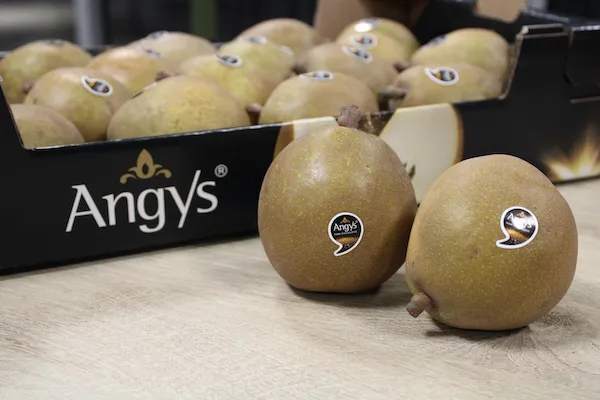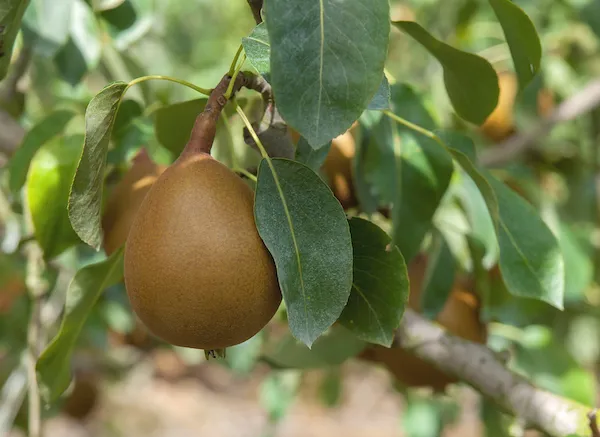The Angys season started around mid-December and is about to end. The frost has had an impact on this year’s harvest, but in the end, the campaign has been quite positive for the Blue Whale cooperative.
“We should have finished a little later, but the Angys has been the victim of its own success. In the coming years, the goal is to extend the season until the end of June. With 1,500 tons, the harvest was a little smaller than last year due to the last spring’s frost. The volumes are 30/40% lower than a normal year and 25/30% lower than last year. However, compared to other traditional pears like the William and Comice, the Angys, which is grown only in the Loire Valley, is the variety that suffered the least from the frost in terms of volumes,” explains Marc Peyres, sales manager of Blue Whale.
 Photo credit: © Angys®
Photo credit: © Angys®
A winter pear that has found its place on the French market
The turnover for this year’s Angys campaign also says a lot about the success of the variety, which is much higher than last year. “This winter pear has found its place with French consumers and scores high in terms of taste. Given the demand in recent years, we have planted a lot in order to double our production area. Now, we are ready. Our volumes will start increasing next year in order to reach 2,500-3,000 tons, and hopefully 5,000 tons within 4 to 5 years.”
 Photo credit: © Angys®
Photo credit: © Angys®
So far, the frost seems to have spared the apples, pears and kiwis
Despite the recent waves of frost, Marc Peyres seems reassured. “We are still cautious, but for the moment, it looks like we have avoided real damage to our apples and pears. Of course, the impact of the weather can vary a lot depending on the producer and/or the production basin, but for now, we must take a step back. The first estimates will be made within three weeks. Other crucial stages of the season can also have a significant impact on the harvest, such as the quality of the flowering and the thinning. In the past, we have had rainy springs that were more detrimental to the production than the frost.”
The apples and pears seem to have been spared by the early spring frost, but the plums, on the other hand, have taken a hard blow this year. “Not all of our plum orchards are protected and in addition to that, some production areas usually spared by the frost were hardly hit this year. For the kiwis, since all of our orchards are protected, the frost did not cause any damage to our production, except for a few cases where motors broke down for instance. But in general, we were able to protect our kiwis.”
For more information:
Marc Peyres
Blue Whale
Phone: +33 (0)5 63 21 56 56
marc@blue-whale.com
